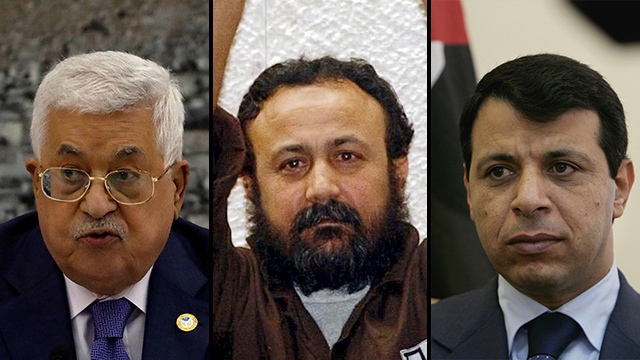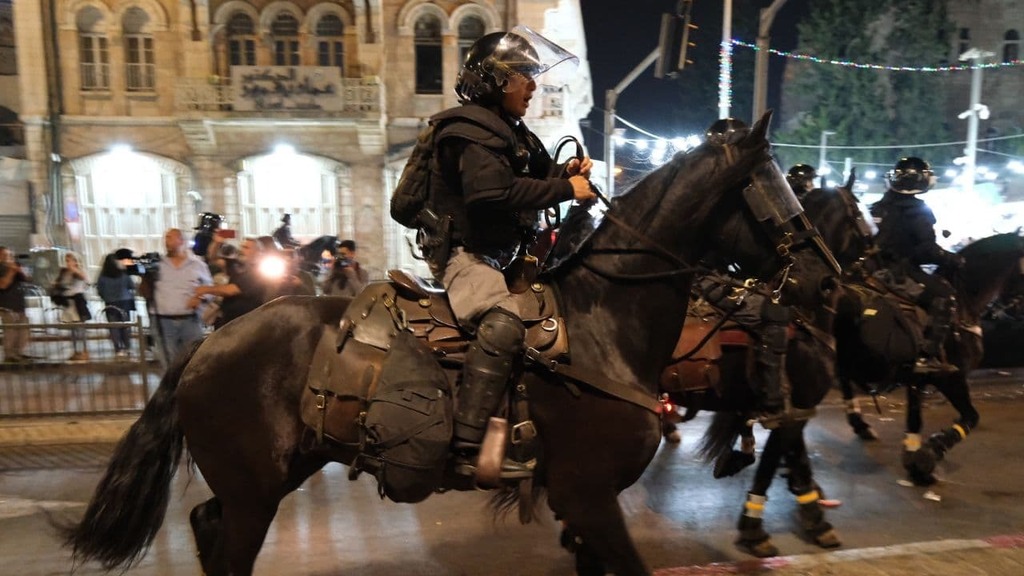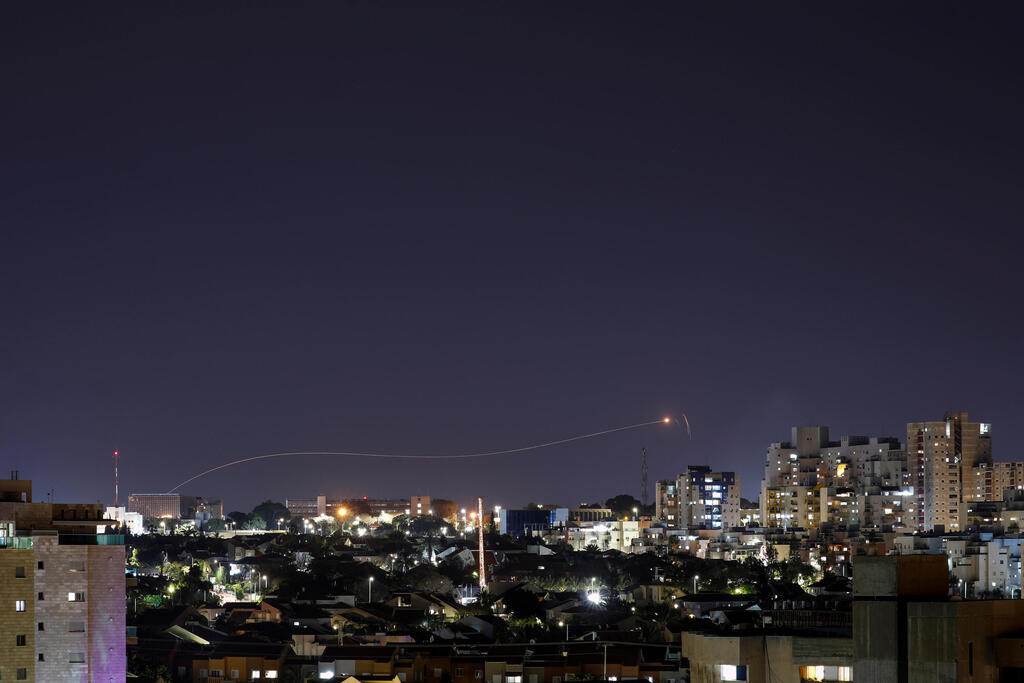As the day of the Palestinian parliamentary elections draws near, Palestinian President Mahmoud Abbas' Fatah faction, which rules over the West Bank, is on a collision course with the Hamas terror group that controls the Gaza Strip — and Israel stands to pay the price.
There are 36 lists vying for seats in the next Palestinian parliament, but four are of particular interest.
3 View gallery


L-R: Fatah rivals Mahmoud Abbas, Marwan Barghouti and Mohammed Dahlan
(Photos: AP, Reuters, Alex Kolomoisky)
The official Fatah list under Abbas' leadership; a slate led by Marwan Barghouti, who is serving multiple life sentences in Israel for terrorism; and a list headed by Abbas' protégé-turned-antagonist Mohammed Dahlan who resides in the UAE and has the ear of the Emirati elite.
The breakup of the Fatah party all but ensures Hamas a win, which neither Israel nor Abbas are prepared to accept.
This would be a repeat of the 2006 election that resulted in two separate and conflicting Palestinian entities, one on the West Bank led by Fatah and the other in the Gaza Strip under Hamas rule.
This possible eventuality is not lost on the leadership in Ramallah while Hamas is confident of its chances to take control of the West Bank as well as Gaza.
The timing of the elections also plays well into the Islamist party's plan. Abbas is nearing the end of his reign. He is in his mid-80s and in poor health, paving the way for new leadership.
But Israel, having refused to announce whether or not it will allow East Jerusalem Palestinians to participate in the elections, has left the door open for Abbas to postpone the elections indefinitely.
3 View gallery


Jerusalem policemen on horseback disperse Arab rioters congregating outside the Old City
(Photo: Yoav Dudkevitch)
Abbas said he would not allow an election to take place if Israel were to deny the vote from that part of his constituency. Hamas, on its part, accuses the president of searching for any excuse to avoid a humiliating loss.
This all connects to an uptick in violence over the past weeks with riots in Jerusalem and rocket fire from Gaza directed at Israel's south.
Hamas has been signaling that any postponement of the elections would result in instability on all fronts.
When Palestinian youths were prevented from congregating near the Damascus Gate entrance to the Old City by Jerusalem police, Hamas used Israel's conduct as justification for its renewed rocket fire.
But that is just an excuse, as shown by the continued rocket fire on Sunday after police removed all barriers from the Damascus Gate area.
Abbas also benefits from the Jerusalem clashes and has repeated his insistence that parliamentary elections will not take place without East Jerusalem voters partaking in the polls.
In a meeting in Ramallah on Sunday, Abbas said that backing down from his demand would equal recognizing former U.S. President Donald Trump's "deal of the century," and his recognition of Jerusalem as Israel's capital.
Israeli officials say the coming days will be an exercise in the "dynamics of escalation."
3 View gallery


Iron Dome missile defense system intercepts a rocket fired from Gaza over the southern city of Sderot
(Photo: Reuters)
Abbas will call off the elections and lay the blame at Israel's door.
Hamas, which will lose its golden opportunity to assume power on the West Bank, will attempt to cause further clashes between Israelis and Palestinians in Jerusalem and elsewhere, with the help of rocket fire at Israeli communities.
Once Hamas launches its own rockets, other Gaza factions will join in. This will force Israel to decide on the scope of its response, which will likely be more severe than merely restricting Gaza's fishing zone.
Israelis should brace for an escalation in violence as the political spat between Abbas and Hamas will exact a price that Israel will have to pay.

